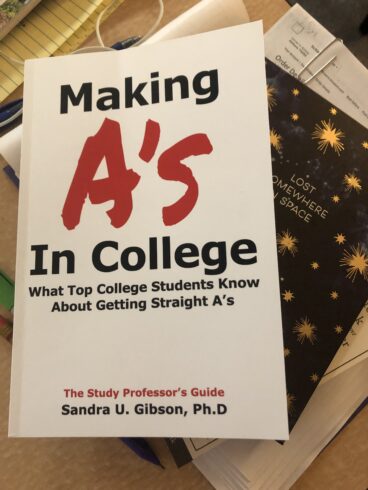Is anyone truly ready for college? And I mean ready, ready. Because if you think you are then Paul Smith Rivas’s first sentence in his book This Book Will Not be on the Test will come as a shock.
Rivas lays it all out: “Parents, your kid is not ready for college” (3). A twist on what we like to think is true. This myth that we are ready for college comes from the problem with higher education: the lack of transparency about students’ academic lives. So, families don’t know what their students should experience or accomplish in college.
 This book is part on-the-ground college insider tell-all memoir and part study skills bible. It’s brutally honest, relatable, entirely free of jargon, and alerts parents/students to a huge problem in American education today—high school doesn’t prepare students to thrive in college. This Book Will Not be on the Test shows students how to learn more and earn better grades in less time so that they can make the most of their college investment.
This book is part on-the-ground college insider tell-all memoir and part study skills bible. It’s brutally honest, relatable, entirely free of jargon, and alerts parents/students to a huge problem in American education today—high school doesn’t prepare students to thrive in college. This Book Will Not be on the Test shows students how to learn more and earn better grades in less time so that they can make the most of their college investment.
Rivas grew up in the University of California, Santa Barabara (UCSB), athletic department because his dad was the academic advisor for the school’s athletes. He went to college at UCSB and worked there as the study skills coordinator and athletics liaison. He now is the director of Smith Rivas Study Sills and Academic Coaching in Washington, D.C.

 Not only is there more of a challenge in college than high school, but there’s also the fact that there is more information easily accessible with a few clicks of a button now than in Shakespeare’s time. When we are flooded with so much information, not only is it difficult to study in general, but there are added problems of how to figure out what’s good information, what’s important, finding the time to read it, and then trying to remember what’s been read. It can be a bit like trying to drink from a firehose.
Not only is there more of a challenge in college than high school, but there’s also the fact that there is more information easily accessible with a few clicks of a button now than in Shakespeare’s time. When we are flooded with so much information, not only is it difficult to study in general, but there are added problems of how to figure out what’s good information, what’s important, finding the time to read it, and then trying to remember what’s been read. It can be a bit like trying to drink from a firehose.